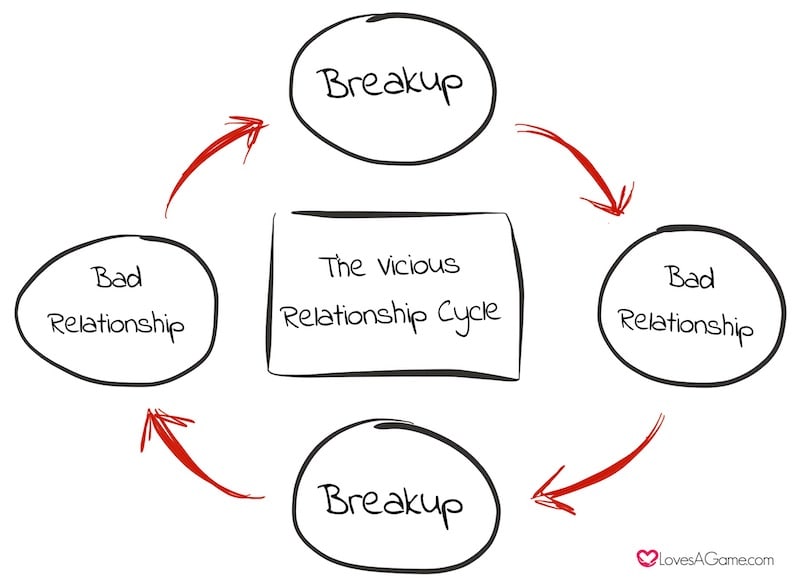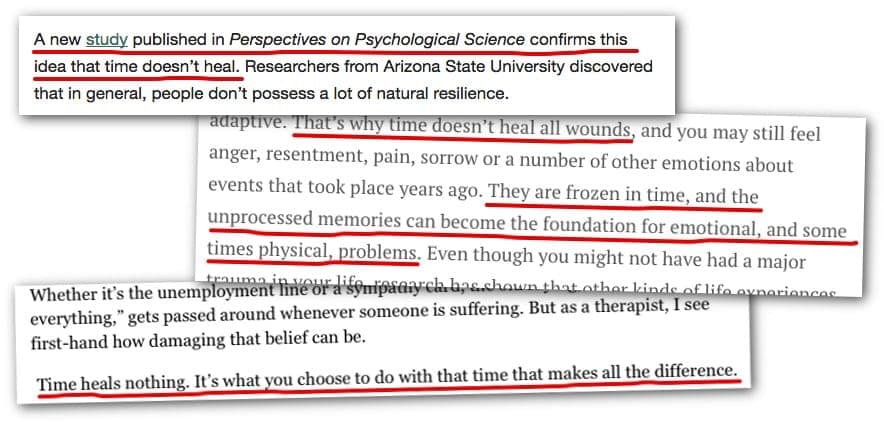The Symptoms and the Underlying Reasons
Have you ever had a severe fever? Did you treat this fever with medication so it went down quickly?
I'm sure you have. Did you notice that in most cases, the fever went up again six hours later?
The fever is just a symptom for another underlying problem. Making the fever go away doesn't really change anything, other than making you feel better for a short time.
The real job is to investigate what is causing the fever and treating it adequately.
It's the same thing with obsessing over your Ex.
You should treat the symptom (and we will get to that).
But more importantly, you should eliminate the underlying problem so this whole thing goes away once and for all.
There are basically two forces that work in the background of your mind and create this seemingly unstoppable urge to overthink everything, making your life a living hell.
Ex-Obsessing Reason #3: It’s a Real Addiction
You are keeping them around just to have another “fix.”
I’ve written about this before, but I just want to reiterate that pining over an Ex is a real addiction (studies have proven this).
Why is this important?
Because you crave the presence of your Ex just like you would a drug.
That’s why you artificially create the only replacement you have right now (your methadone), which is a mind-rendezvous with your Ex.
You are keeping them around by over-thinking everything.
Of course, obsessive begging, texting, and internet-stalking is much more explicable now in this context.
Ex-Obsessing Reason #4: Core Pain-Points From Your Subconscious
“… the greatest wounds, we hide inside ourselves where they never show.” (excerpt from a song)
Rachel, a Case Study:
Rachel had a rough childhood — not so much concerning abuse, but more of watching her parents live a hopelessly dysfunctional marriage.
Not a day went by without arguing, yelling, and aimless drama. Little Rachel and her sister watched it all; her parents didn’t even try to protect their kids from it.
But the worst thing for Rachel was that her father would pack up his suitcase almost every month after a big fight and disappear for a week.
Rachel grew up witnessing a marriage that would be her own eventually: constant struggle, one pushing away the other, and ubiquitous fighting.
And above all, there was the subconscious fear that the man she thought she loved would pack his suitcase and disappear — the fear of abandonment.
Whenever people continue to suffer disproportionally after a breakup or divorce, the reasons are usually more profound.
Something that we are carrying around our whole lives is activated and takes over our behavior.
That’s why the emotional distress we feel isn’t necessarily caused only by the fact that our Ex left us; the Ex is merely the face of our pain.
The real cause is what I call a “Hidden Core Pain-Points.”
“Hidden Core Pain-Points” are negative or toxic belief systems that result from experiences we had in our childhood or early adulthood. And this is not necessarily trauma or abuse.
This could merely be early memories or negative behaviors and beliefs picked up from our parents. Or just things that happened in early adult life that shaped our vision about love and relationships.
Here are a few examples:
- Don was accidentally trapped in a bus as a five-year-old while his mother stood outside and watched him be taken away.
- Anne was always teased in school because she was different from everybody else. She started to hate the very things that made her special because of this.
- Eddie had an overly authoritative father who killed every autonomous tendency in himself (that’s me).
And you already read about Rachel.
And here’s what this all means, the critical thing:
These unresolved “hidden pain-points” are the reason most of us have the same toxic relationship our whole lives, going from one breakup to another:

The Vicious Relationship Cycle — Why Time Won’t Heal It
“Hidden Core Pain-Points” are also responsible for the pain you feel right now and why you can’t stop thinking about your Ex.
They are secretly working in the back of your mind, sabotaging your efforts to move on.
These destructive belief systems create fears, blockages, phobias, barriers, and aggression.
From our examples above:
- Don has abandonment issues.
- Anne can’t accept and love herself, thus not allowing any partner to do so.
- Eddie tried to compensate his insecurities with a partner.
As you can see, each “Hidden Core Pain-Point” creates friction and can sabotage any relationship and ultimately, your life.
Will time heal this?
No, it won’t.
Your wounds will still be there, and they WILL continue to do damage in your life.

So, now that we know that real addiction and “hidden pain-points” are the underlying reasons for your pain, what do you think happens when we resolve them?
Exactly what you think: All the post-breakup “symptoms” you are experiencing right now will slowly fall away:
- You will think less and less about your Ex.
- You will connect to yourself more.
- You will realize WHAT kind of partner you really want.
But how do you start this process?
What are the next steps?
I’ll show you on the next page.
Click to Continue (Part 4/4) >>>
![]()
Your friend and coach,
Eddie Corbano
© 2007-2019 LovesAGame.com. All rights reserved | Privacy Policy | Terms of Use
